
Japan 2020, a six month event showcasing over 100 years of Japanese cinema, is live now on BFI Player.
Collections on Akira Kurosawa and classic Japanese movies are available to watch, with more to follow in June through October.
The Tokyo Olympics are postponed until 2021, and possibly beyond. The chances of travelling to and from the Isle of Wight let alone Japan this year are wobbly. So, the fact the BFI are going ahead with the season is great news in a miserable time.
Safely escape lockdown for £4.99 a month (and two weeks free trial) by journeying through over one hundred years of Japanese cinema from the comfort of your living room.
Classics of Japan’s Golden Age and films that rocked the studio system. Masterworks from the independent scene and the new millennium. Plus collections on the two areas of Japanese cinema that truly crossed over to the West in the past twenty years – J-Horror and anime.
After launching, collections will remain on BFI Player for the foreseeable future, along with to-be-announced live intros, Q&A events and more. Meaning both Japanese cinema newbies and those who know their Akira Kurosawa from their Kiyoshi Kurosawa will find movies and extras to thrill and delight.
BFI Japan 2020 is a huge event, spanning many months. Let’s see what treasures await…
CLICK HERE FOR MORE INFORMATION ON BFI PLAYER
AKIRA KUROSAWA COLLECTION (11th MAY)

Arguably still Japan’s most important cinematic export, Kurosawa’s movies inspired filmmakers who went onto revolutionise Western cinema.
Clint Eastwood was so taken with Kurosawa’s Yojimbo that he and Sergio Leone remade it as A Fistful of Dollars and kickstarted the Spaghetti Western genre. Yul Brynner’s admiration for Seven Samurai saw him translate it into The Magnificent Seven. Yul was less enamoured with co-star Steve McQueen quietly stealing the film from under his nose, placing the cocky actor on the road to Icon City.
1950’s Rashomon stunned world cinema by presenting a story from contradictory character viewpoints, so audiences were unsure what was true and what was false. At least, that’s how I remember it. Films employing this “Rashomon effect” include The Usual Suspects, Courage Under Fire, Jet Li’s Hero and Park Chan-wook’s The Handmaiden, alongside many others.
Kurosawa also made a film called The Hidden Fortress that inspired a young filmmaker named George Lucas when he was writing a certain space adventure. No Kurosawa, no Star Wars.
These films, plus 17 others, will be available in the collection, spanning the director’s career. We have yet to see the slyly subversive 1945 wartime allegory The Men Who Tread on the Tiger’s Tail and the 1963 Ed McBain adaptation High and Low, so will be going to those first. While returning to amongst other, Ran, Kurosawa’s astonishing reinterpretation of King Lear. Kurosawa adored The Bard, and audiences should also make time for his Macbeth retelling, Throne of Blood.
CLASSICS COLLECTION (11th MAY)
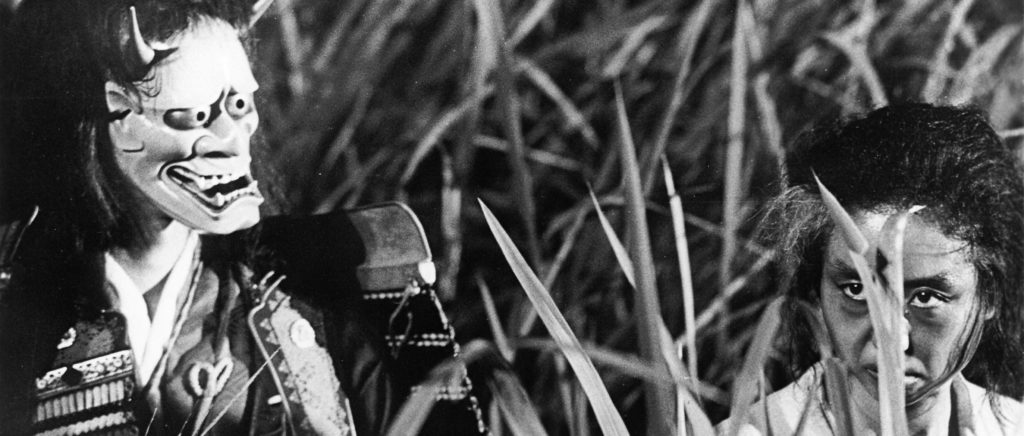
But, day one is not just about Akira Kurosawa. The Classics Collection showcases masterpieces of Japanese cinema from the 1950s to the 1990s. Must-see titles here are Mikio Naruse’s When A Woman Ascends the Stairs and Kaneto Shindô’s Onibaba.
Plus, Hirokazu Kore-eda’s After Life, an underseen joy about the recently deceased deciding which one memory they will take with them into eternity. This is a film so captivating we’re amazed Hollywood never attempted a remake.
YASUJIRO OZU COLLECTION (5th JUNE)
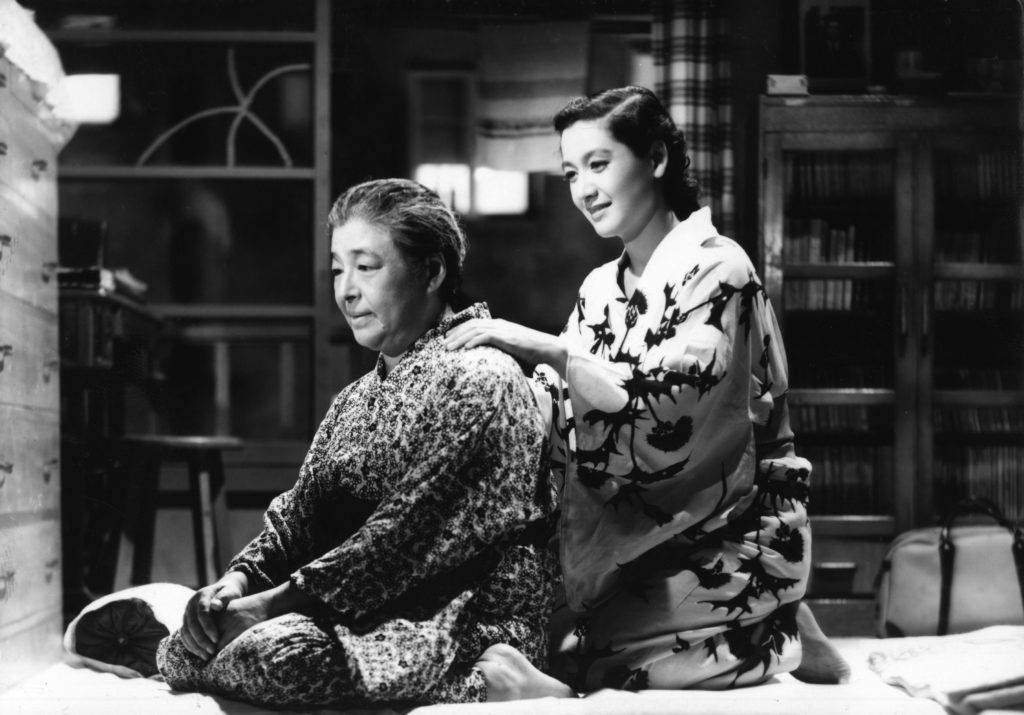
On 5th June, BFI Japan launches the Yasujiro Ozu collection. Often regarded as a more “Japanese” director than Kurosawa (he himself also said this), the collection is a great opportunity to discover how moving and accessible are Ozu’s movies.
True, there are not many samurai, and hardened criminals and desperate cops are scarce. But, Ozu’s quietly powerful studies of Japanese family life resonate still and will continue to do so as long as there are children, parents, grandparents and in-laws.
Tokyo Story, the director’s most famous film, is a good place to begin, recounting an elderly couple’s visit to the big city and being ignored by all family members bar their widowed daughter-in-law. Early Summer stars legendary Japanese actress Setsuko Hara as a woman pressured to marry, but who has different ideas. The Flavour of Green Tea Over Rice, reportedly one of Ozu’s favourites of his own films, is a funny, moving account of a marriage in crisis, made almost 70 years before Marriage Story…
25 Ozu films will comprise the most comprehensive collection of his work made available on demand.
CULT COLLECTION (3rd JULY)
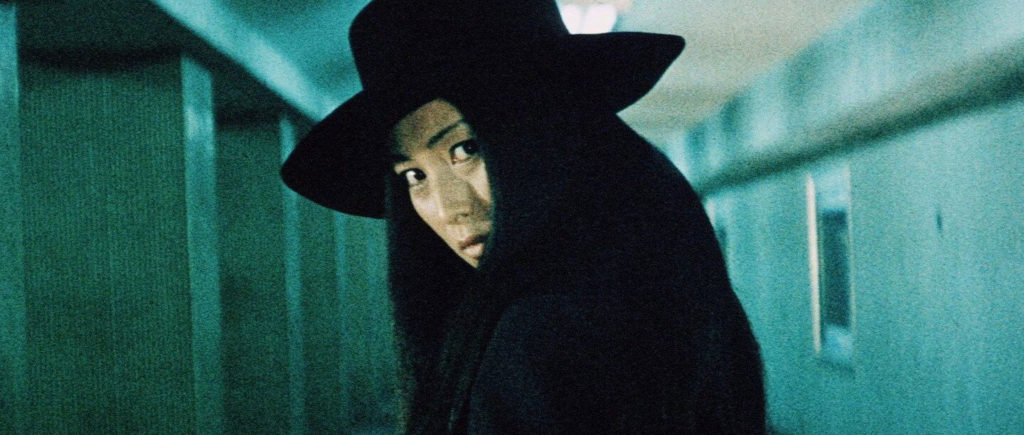
While Japanese film is often associated with formal elegance and restrained emotion, many film fans will have been introduced to the country’s cinema through more outrageous movies.
On 3rd July, the Cult Collection will highlight some of the best examples of Japanese exploitation cinema.
“Pink Cinema” is a label for Japanese sex movies, but undersells what they are. Encompassing dramas, thrillers and surrealism, pink films were (and are) often hotbeds of experimentation and innovation. The “pink” film in this collection, the startlingly titled Gushing Prayer by Masao Adachi and Haruhiko Arai, is difficult to pin-down, politically subversive and compulsory viewing.
Meiko Kaji is beloved to fans of cult cinema. Hopefully, three films in this collection showcasing her star appeal will introduce Kaji to new audiences. Who would not want to watch the following, wonderfully monikered movies: biker girl flick Stray Cat Rock: Delinquent Girl Boss, tough prison movie Female Prisoner #701: Scorpion and feudal revenge blast Lady Snowblood? Watch those latter two and their influence on Kill Bill Vol.1 is obvious.
Nobuhiko Ôbayashi’s House is deceptively mundane in its title, but this gloriously deranged “schoolgirls in a haunted mansion” movie is anything but ordinary.
ANIME COLLECTION (31st JULY)
31st July sees the Anime Collection launching. Titles are being finalised and we’ll update when they are announced.
INDEPENDENCE COLLECTION (21st AUGUST)
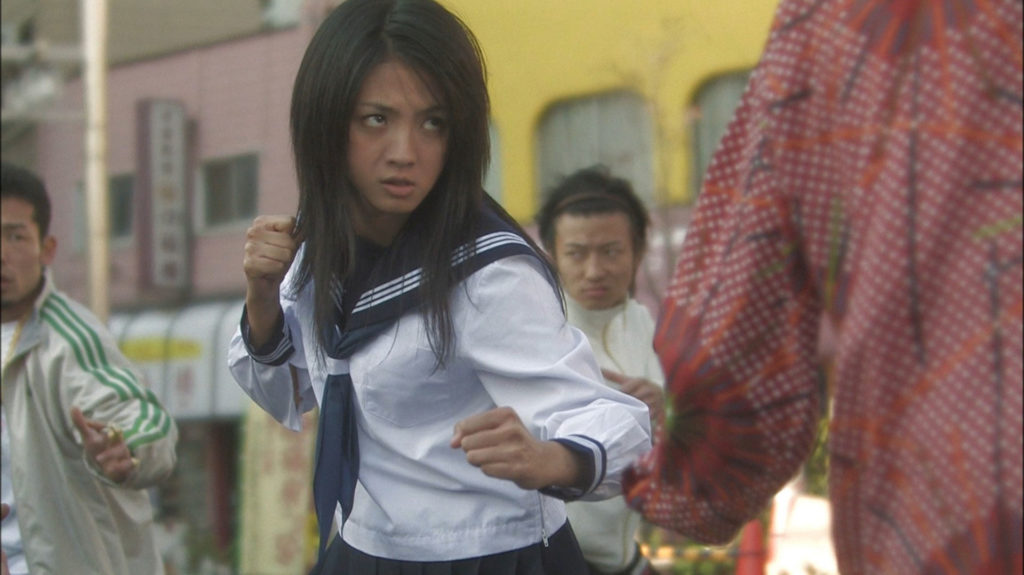
When Japan’s studio system began to wobble in the mid-60s, numerous radicals and rebels emerged to make films in the independent sector. Linking these movies was the astonishing creative talent of the directors, with fresh stories to tell and innovative ways to do so.
The Independence Collection is a must watch salute to these left-of-field moviemakers.
Toshio Matsumoto’s Funeral Parade of Roses is a scandalous, hallucinogenic journey through Tokyo’s 1960s queer underground scene. When a 1969 movie is still rated “18”, you know it’s worth checking out.
Shin’ya Tsukamoto, whose reputation in the independent scene is near-mythical, fused cyberpunk, body horror and metropolitan anxieties for 1989’s masterly and influential Tetsuo: The Iron Man. Another live-wire director is Sion Sono, and his 4-hour epic Love Exposure is a dazzling, disturbing odyssey through 21st century Japan’s fringe society.
More sedate, but no less impressive films featured include Hirokazu Kore-eda’s debut, Maborosi, a moving account of a woman’s life in the aftermath of her husband’s sudden death. Also, Takeshi Kitano’s A Scene at the Sea, a tender, funny account of a hearing-impaired couple, whose emotional impact really creeps up on you.
21st CENTURY COLLECTION (18th SEPTEMBER)
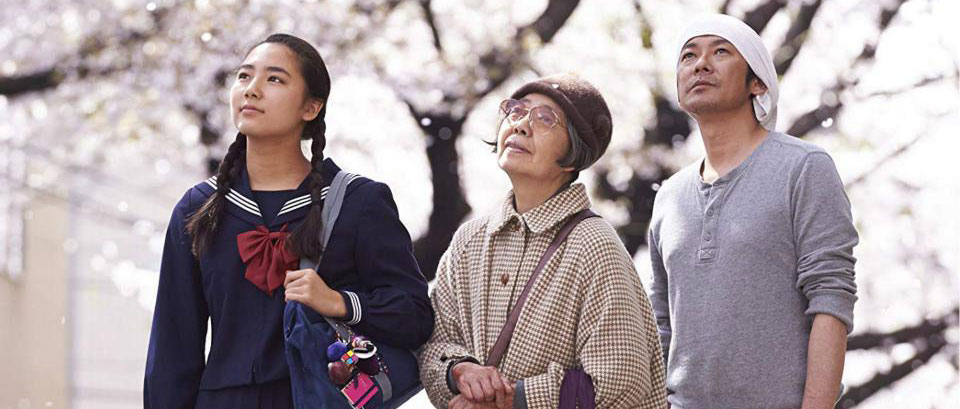
By September, hopefully cinemas will be reopened. We’ll see…
Regardless, BFI Japan 2020 will deliver another great collection, here focussing on films in the new millennium. Japanese cinema has arguably lost its cool status to South Korean film in the past twenty years, but is still producing essential movies.
Highlights here include Sweet Bean, Naomi Kawase’s tale of a redemption and street food, Nobody Knows, Hirokazu Kore-eda’s heart wrencher about children left to fend for themselves by a neglectful mother and Kiyoshi Kurosawa’s memorable home invasion thriller Creepy.
EARLY FILMS OF JAPAN 1894 – 1914 (12th OCTOBER)
October’s Early Films of Japan is a collection to celebrate. Taken from the BFI National Archive and remastered and digitised for this season, these are the earliest known films depicting Japan, offering a Western perspective on Japanese life and customs. The collection will be free on BFI Player.
J-HORROR COLLECTION (30th OCTOBER)
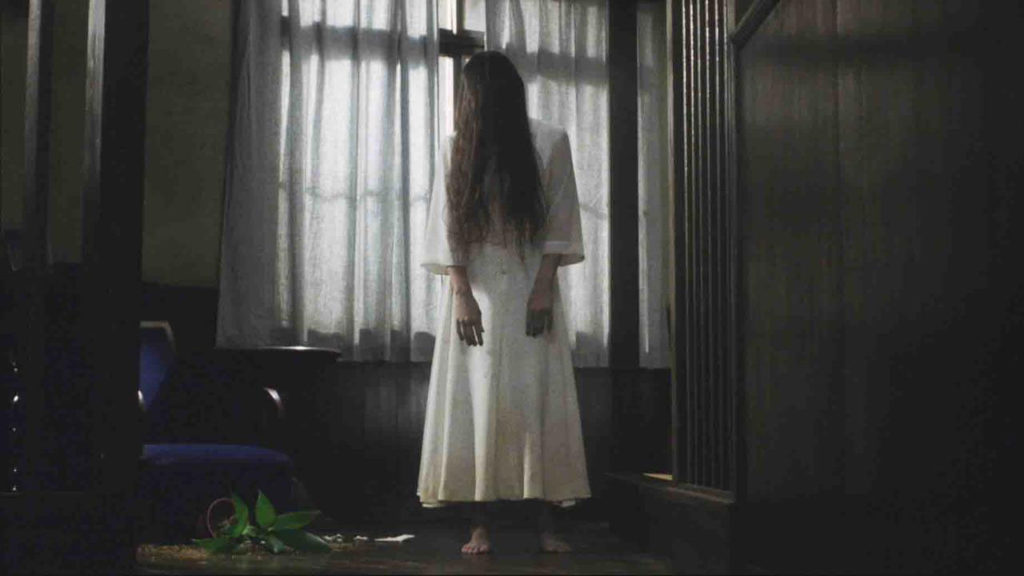
BFI Player’s Japan 2020 season ends with the J-Horror Collection, fittingly released on 30th October in time for Halloween. For those of us who remember when J-Horror first hit these shores, the scariest thing is realising that was twenty years ago. The collection features Hideo Nakata’s Ring, the sensation that shocked the world into paying attention to these new fright films emerging from Japan, plus Takashi Miike’s breakout hit, the disturbing, heart-breaking Audition.
Also included are Nakata’s Dark Water and Miike’s zombie-musical-part-Claymation extravaganza The Happiness of the Katakuris. That last one needs to be seen to be disbelieved.
Filmmaker Kiyoshi Kurosawa’s films are not as well-known as Ring or Audition, but Pulse and Cure are unforgettable chillers. Stretching the category, space is made for Kinji Fukasaku’s gloriously wild Battle Royale, the “high school students fight to the death” film that was a clear inspiration on The Hunger Games… no matter what author Suzanne Collins says.
Shin’ya Tsukamoto’s A Snake of June is also not horror per se, but a twisted psychosexual story of power and control guaranteed to inspire debate amongst those who watch it.
Reminding us that Japan has a long and wonderful tradition of spectral cinema, Kaneto (Onibaba) Shindô’s 1968 film Kuroneko is perfect for Halloween night, telling the tale of two ghosts seeking revenge against soldiers who horrifically wronged them.
BFI JAPAN 2020 ON THE BIG SCREEN
While currently difficult to believe, someday cinemas will re-open. If that day is by 23rd October, we’ll be able to see Seven Samurai in a UK-wide reissue. Still a genuine crowd pleaser almost 70-years after it was made, this film is a great Saturday or Sunday afternoon at the flicks.
If cinemas do re-open, 2020 will end with two seasons at the BFI Southbank: The Golden Age and Radicals and Rebels, before hosting 21st Century Japan and Anime seasons in 2021. More on those later in the year if they go ahead.
But, for the moment BFI Japan 2020 is a perfect opportunity to turn your lockdown into a virtual holiday.
To coincide with the season, the BFI will also be releasing Blu-rays and DVDs.
The BFI Japanese Cinema Book is available now.
Rob Daniel
Twitter: rob_a_Daniel
iTunes Podcast: The Movie Robcast

Pingback: 64th London Film Festival - Check out our 10 Must-See Movies
Pingback: BFI Japan 2020's Classics Collection - 5 Must-See Movies
Pingback: Family Matters: Dr. Alexander Jacoby on Yasujiro Ozu's continued importance
Pingback: Japan 2020's Akira Kurosawa Collection - 5 Must-See Movies